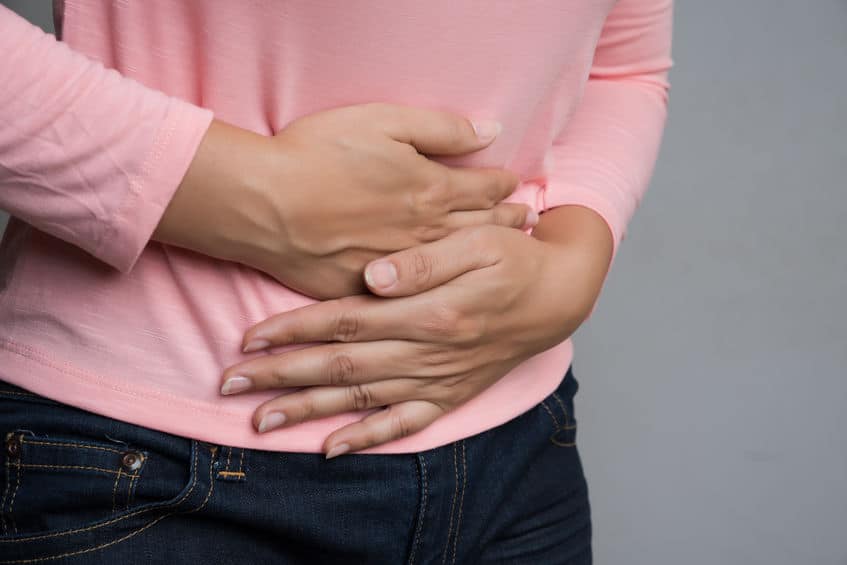Ah, the joy of the foamies. Do they ever go away?

The quick answer is, No, they do not. Thankfully, for me, and a vast majority of gastric bypass patients, foaming doesn’t happen all that frequently anymore. I’m “relatively” foamie free. It’s been 20 years since my gastric bypass and I still, on occasion, get to experience the joy. But don’t despair, if you are currently dealing with them, there are a few things I have learned over the course of 20 years that can help.
This post contains product links. As an Amazon affiliate, I may earn a small commission from qualified purchases. Thanks for your support!
Just A Quick Reminder Exactly What The Foamies Are
Interestingly enough, I never bothered to learn exactly what that icky foam I experienced right before vomiting was. I just knew it happened, it was gross, and I dealt with it. It wasn’t until I decided to write this post that I actually decided to research what the “Foamies” are. I didn’t even know there was a nickname. The “Foamies”, is such a cute name, for such a gross thing.
So here is a quick, technical explanation. When you eat too much food, eat food too fast, or in many cases, eat certain foods, the food blocks the opening from the stomach to the intestine, for those who enjoy medical jargon it’s known as the stoma. Since you no longer make as much gastric acid, the body tries to aid digestion by producing a slimy, foamy liquid mucus. (Yup, it’s as gross as it sounds.) This foamy substance is produced in amounts too large for the new pouch to handle. The end result for most people is vomiting up the foam and in many cases the food as well.
Warning Signs The Foamies Are Coming
Most people get a fair amount of warning before vomiting or spitting it up. I always experienced abdominal discomfort. From simply feeling bloated to outright pain, sometimes excruciating pain. I also experienced uncontrollable watering of the mouth. An early warning sign for me that was always, without fail, going to be followed by vomiting. Some people are lucky enough to be able to spit a few times and get rid of the foam. Not me. Whenever it happened to me, it always led to vomiting, always. And 20 years later, it still does.

The good news is that over the course of time, I’ve learned what most often causes it to happen to me, and how to avoid it. I think I do a pretty good job of avoiding the Foamies today. I experience it about once a year now. Here’s what I’ve learned works for me.
What I Do to Prevent The Foamies
An important thing to remember is, that no two people are alike. What works and doesn’t work for me, may be different for you. Just because we have had the same procedure doesn’t mean we will experience the same side effects. Nor that they will be of the same severity if we do.
Honestly, what I discovered, was by simply paying close attention to what and how I ate, I learned not to make the same mistakes over and over. (I know, that holds true to pretty much everything in life.)
In the very beginning, right after surgery, I did great. I was so cautious about doing everything right. I never overate, I cut my food into teeny tiny pieces, I avoided foods that cause gas, you name it, I did it. I was a model patient. Jump forward a couple of months, and not so much.
You get complacent. You start doing other things while eating. Something as simple as talking to your family during dinner can distract you. You forget to be mindful of how you eat. You swallow too big a bite or rush to finish your meal. And Bam! Just like that, the tummy discomfort starts, and the mouth-watering begins, and then the Foamies rear their ugly slimy head.
The first step for me toward prevention was noting exactly where I went wrong. Most of the time for me, it was swallowing an item that was too big, usually meat. Other times it was the type of meat I ate, and of course how much I ate. I remember the first time I made a Pernil, a classic Puerto Rican, slow-cooked roast pork. It looked fantastic and smelled so good. I had never made one before and couldn’t wait to eat it. Literally two bites later, I was in agony. I was so bummed. I wanted to eat that pork so badly, but my stomach was just not having it. In this case, I remember it taking the longest time before I finally threw up. The foaming was the worst I had experienced to date. It just went on and on. To this day, I remember this experience like it was yesterday.
Pork continued to be a problem for me for many more years, so I avoided it. It was one of two foods that always caused the Foamies for me. The other problem food was zucchini. It had been one of my favorite foods. Now it was my nemesis. Every single time I ate it, I got the Foamies. Didn’t matter how it was cooked. Fried, Foamies. Grilled, Foamies. In soup, Foamies. Foamies, foamies, foamies. Needless to say, it was years before I ate zucchini again as well. 20 years later, if I’m not careful, these two foods can still give me trouble.
Portion control was, and still is very important. Ingrained from childhood, eating everything on your plate, sticks with you. I use these two things the most to help with portion control, small glass containers, and smaller plates than an average dinner plate. Get a lot of them so you can’t say “My plate’s in the sink” and then have to use a bigger one. You can also check out this great portion control line from Uba. When I first had surgery I was very into the divided dish.
I have also discovered that when I did mess up, (see I said when, because it’s inevitable, we’re all human) and wound up with the Foamies, if I lay down, the prone position quickly helped me to vomit. According to Andy The RD, “This is because when you are upright gravity and your digestive system are both pushing in the same direction, when you lie down, they aren’t.” In other words, it makes it easier to encourage the food to come up rather than head down.
When all else failed for me, I would drink soda. Remember at this point I’m not trying to prevent. I just want the Foamies gone. Two slugs of Pepsi and I was throwing up. Here’s why I believe it works for me. A small study, published in the Journal of Nutrition in December 2018, tested the effects of carbonated beverages on 34 people (half women and half men) and found that carbon dioxide increases what’s known as gastric volume, which can lead to discomfort — feelings of bloating, nausea or fullness, for instance. So if my stomach was already overfilled, the additional volume really had nowhere to go but up.
Other Remedies I’ve Heard Of
I saw a lovely lady on YouTube from the Mexico Bariatric Services talk about drinking warm water, with or without lemon, either 30 minutes before or 30 minutes after you eat. Maybe that works for some people. For me, the Faomies never happened frequently enough for me to prepare for it. When it did happen, I was throwing up within 10 minutes, there was no worrying about 30 minutes later.
Another remedy people use is Papaya enzyme, an over-the-counter chewable that can help with breaking down food. I’ve never tried it but if this was 20 years ago and I had been aware of it, I probably would have. WebMD states, “Unripe papaya fruit contains papaya latex, which contains an enzyme called papain. Taking large amounts of papain by mouth may damage the esophagus.” But, Medical News Today states, “Natural digestive enzymes are available in health stores and drugstores. These often contain extracts of papaya and pineapple, which can stimulate the production of stomach acid.” So, I guess, like most things, there are pros and cons and moderation is key. You decide what you think is best for you. And most importantly, consult your doctor.
Recap
I am now 20 years post gastric bypass and foaming never went away for me. On the bright side, it happens so sporadically that it’s hardly part of my life anymore.
Combat the Foamies with knowledge. Remember what causes it for you and be vigilant in not repeating the cause.
Avoid foods you know you’ve had problems with and if you want to try them again, introduce them back slowly.
Remember the basics. Cut your food small. Chew thoroughly. Eat slowly.
And as always, talk to your doctor if you’re concerned that there may be a problem.
